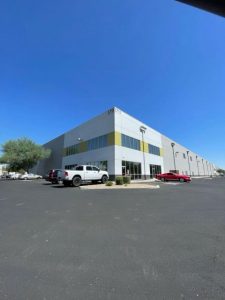CARY, N.C./BRUSSELS — November 18, 2021 — A new report published by two nonwoven trade associations forecasts strong market demand for nonwovens materials through the next five years, according to the joint publication from EDANA and INDA’s Global Nonwoven Markets Report, A Comprehensive Survey and Outlook, 2020–2025.
This is the seventh edition of the Global Nonwoven Markets Report, formerly titled Worldwide Outlook for the Nonwovens Industry, and is available for purchase from both INDA, the Association of the Nonwoven Fabrics Industry, and EDANA, the International Association Serving the Nonwovens and Related Industries.
This comprehensive report provides in-depth information and analysis of the global nonwoven macro drivers, supply and demand, and regional trade. Among the highlights of the report:
- In the historical period (2010–2020) production increased 6.2-percent annually, led by growth in the spunlaid processes and drylaid hydroentanglement.
- China led the growth in production, adding an additional 4.7 million tonnes from the end of 2010 through to the end of 2020, representing a 11.5-percent annual growth rate.
- Across the nonwoven end use segments, the wipes, filtration, medical segments expanded at the fastest rates, given the industry’s rapid response to provide materials that keep the surfaces we touch clean, protect the air we breathe, and provide a barrier to keep our bodies safe.
“The worldwide nonwovens industry’s prospects are excellent and it remains an exciting industry in which to be involved,” said the report’s co-authors Jacques Prigneaux, Market Analysis and Economic Affairs Director at EDANA and Brad Kalil, director of Market Intelligence & Economic Insights at INDA.
The report includes detailed regional information and forecasts on production, technology and investment requirements for North America, Greater Europe, Asia and the South America region. The report further features regional views of economic growth, population, product by end use, and trade flows. Other key topics include raw material usage and a detailed appendix.
“As strategic partners, INDA and EDANA are committed to promoting the sustained growth of the nonwovens industry. This report provides the industry’s best estimates on future demand by the key nonwoven segments and it is predicated on sound macro-economic analysis,” said INDA President Dave Rousse. “This Global Nonwoven Markets Report is an essential planning resource for all those involved in global strategic planning for nonwovens throughout the supply chain.”
“With the remarkable growth and global success of nonwovens, both industry insiders among our member companies and outsiders, from financial analysts to potential investors, require more than ever reliable sources of market information as well as forward-looking data. This new report issued by our two leading nonwovens industry associations builds on decades of experience, and of close observation and direct data collection from hundreds of companies,” said EDANA General Manager Pierre Wiertz. “Produced by the industry for the industry, this is therefore a unique tool and a more legitimate and reliable source of data than any other report about nonwovens.”
The report is available for purchase now and delivery starting on September 30, 2021. For more information or to purchase, contact:
INDA:
Cindy Garcia, cgarcia@inda.org, (919) 459-3711, or visit https://imisw.inda.org/store/searchresults.aspx?categoryid=2
EDANA:
Jacques Prigneaux, Market Analysis and Economic Affairs Director, +32 2740 1818, jacques.prigneaux@edana.org, or visit https://www.edana.org/publications/statistics-nonwovens-report
Posted November 18, 2021
Source: EDANA and INDA





